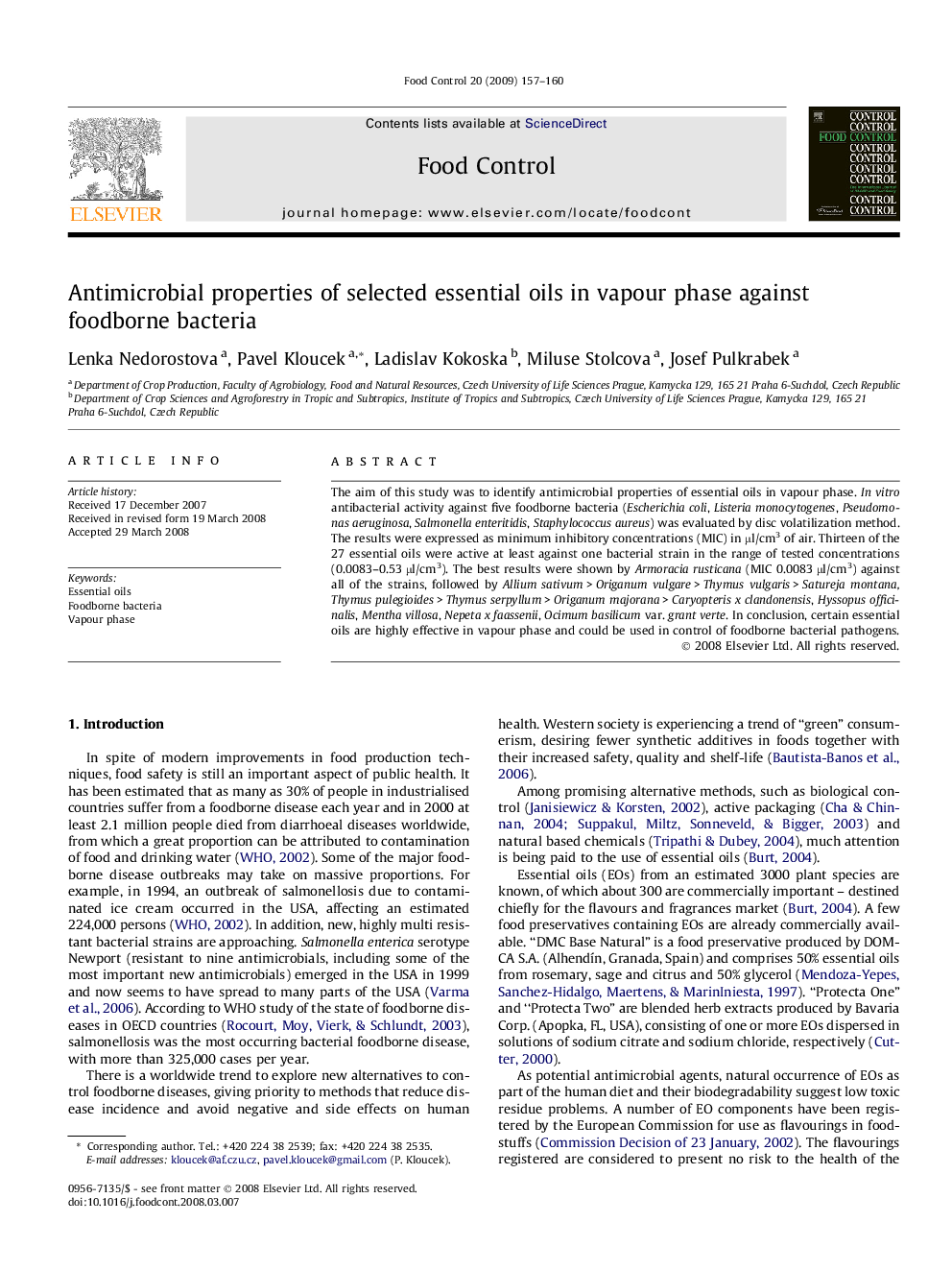| Article ID | Journal | Published Year | Pages | File Type |
|---|---|---|---|---|
| 4560315 | Food Control | 2009 | 4 Pages |
The aim of this study was to identify antimicrobial properties of essential oils in vapour phase. In vitro antibacterial activity against five foodborne bacteria (Escherichia coli, Listeria monocytogenes, Pseudomonas aeruginosa, Salmonella enteritidis, Staphylococcus aureus) was evaluated by disc volatilization method. The results were expressed as minimum inhibitory concentrations (MIC) in μl/cm3 of air. Thirteen of the 27 essential oils were active at least against one bacterial strain in the range of tested concentrations (0.0083–0.53 μl/cm3). The best results were shown by Armoracia rusticana (MIC 0.0083 μl/cm3) against all of the strains, followed by Allium sativum > Origanum vulgare > Thymus vulgaris > Satureja montana,Thymus pulegioides > Thymus serpyllum > Origanum majorana > Caryopteris x clandonensis, Hyssopus officinalis, Mentha villosa, Nepeta x faassenii, Ocimum basilicum var. grant verte. In conclusion, certain essential oils are highly effective in vapour phase and could be used in control of foodborne bacterial pathogens.
